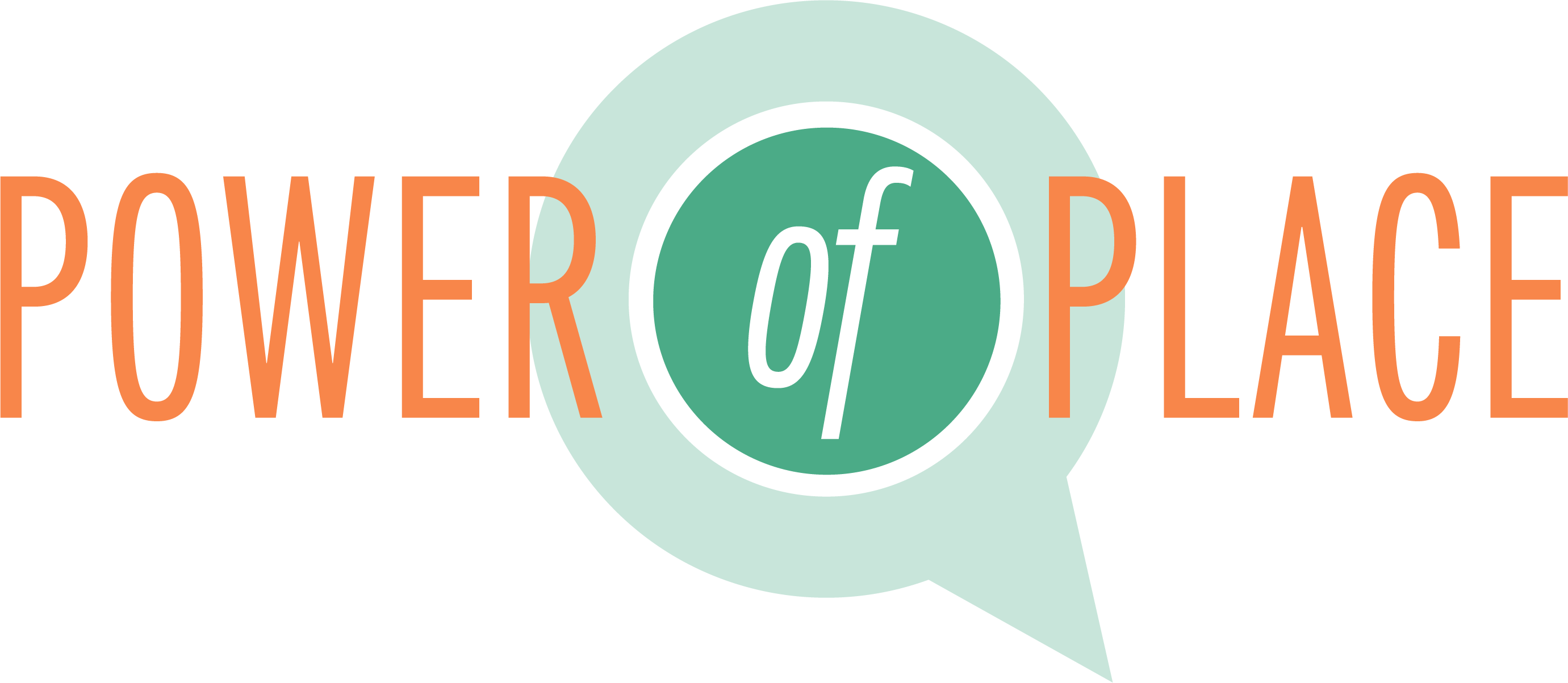June 1, 2023 Read Time:
ConnectingStudents
We often say that when educators are able to connect meaningfully with one another they come to feel a renewed sense of purpose, energy, and confidence. But what happens when you add students to the mix?
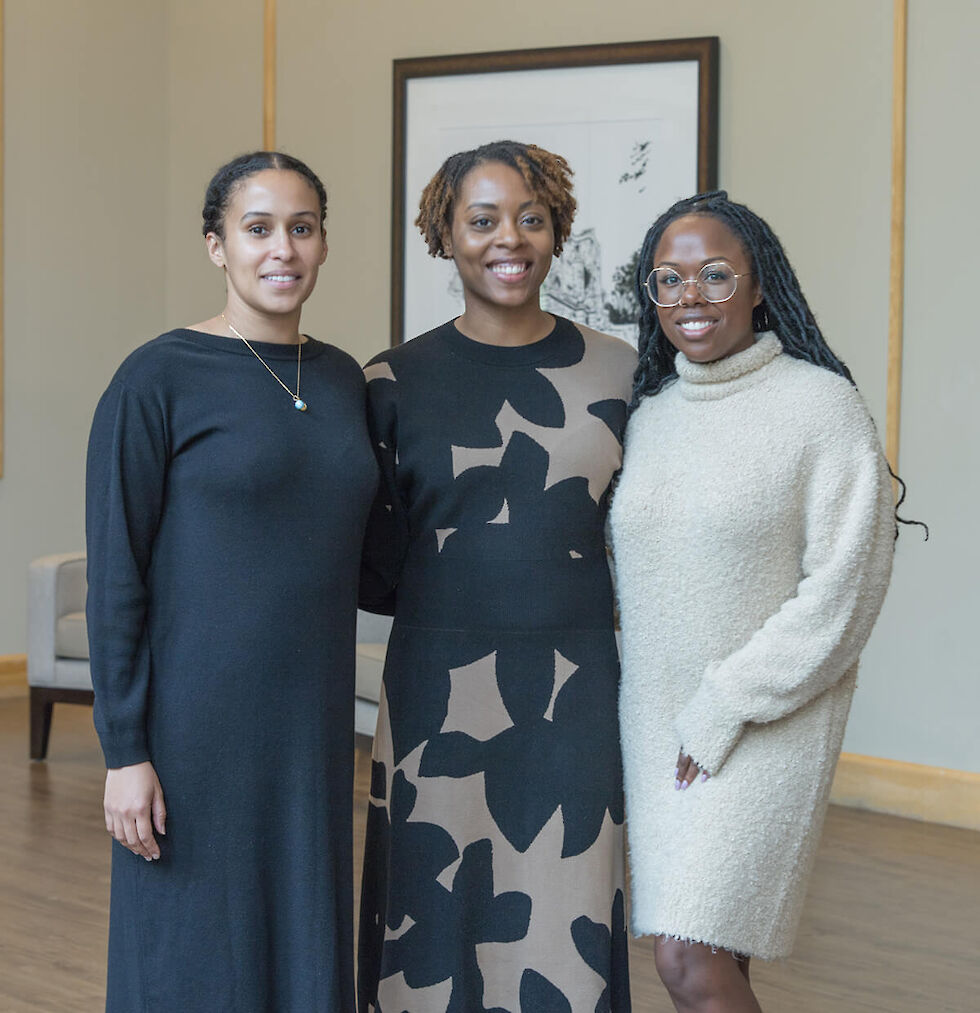
This is what we tried at the ECLC spring gathering on May 4, and the results were extraordinary. “Partnering for the Future,” led by a team of expert facilitators from Transcend Education, brought together teams of educators and students from eight Essex County districts for a day of collaboration, exploration, reflection, and imagination. Working in teams, the teachers and students collaboratively dreamed up visions for their “ideal” schools, incorporating strategies to foster student voice and agency in each community.
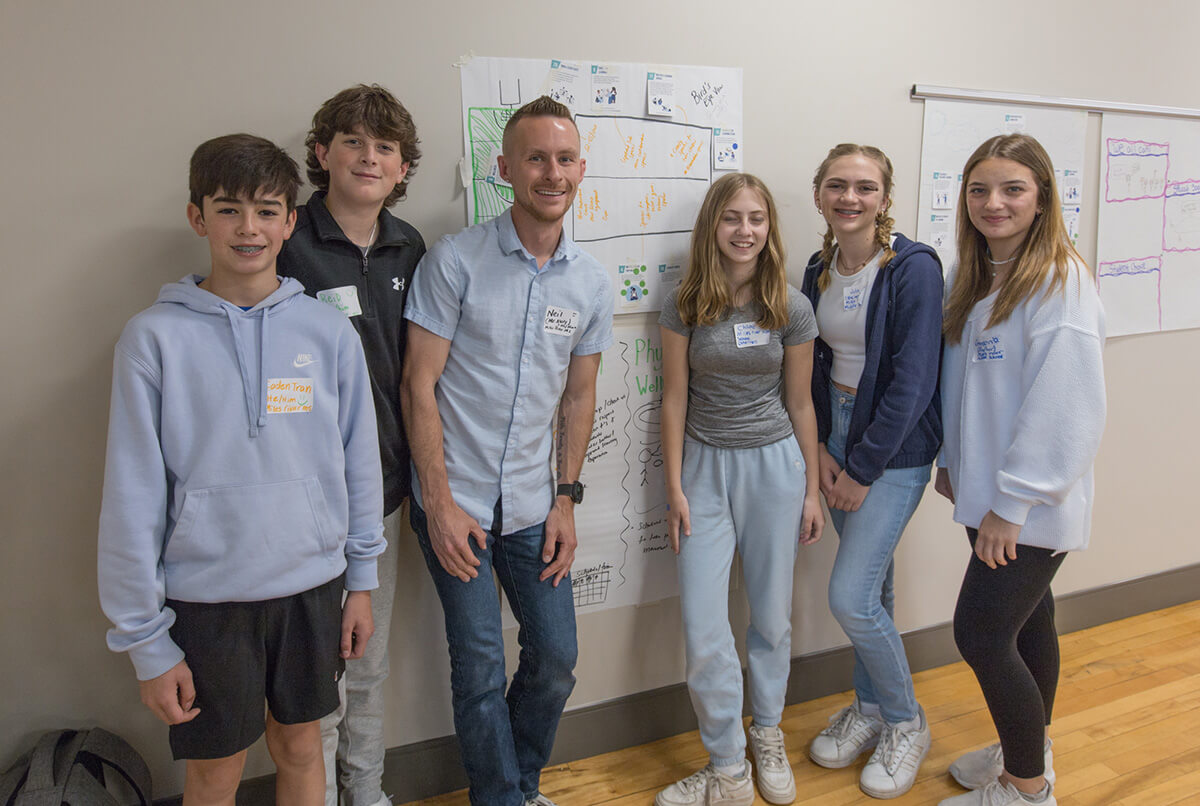
Students began the day by reflecting on their current experiences in a breakout session. Facilitator Aileen Tejeda read statements and the learners voted with their feet, moving to the north corners of the room for “agree” and “strongly agree,” and to the south corners for “disagree” and “strongly disagree." Here’s how it went.
Tejeda: “I have ample opportunity to talk with adults about my learning.” The entire group moved into the “agree” corner.
Tejeda: “Staff always ask us about our experiences in our classes and our school.” Some moved into the “strongly agree” corner, none to the south end of the room.
Tejeda: “Adults at my school respect my ideas and suggestions.” Unanimous agreement.
At this point, Aileen’s colleague, Shari Lawrence, stepped in with a question: “What about the other kids at your school? How would they respond to that last statement?”
The students paused, murmured to one another, and then, thinking about their fellow students, about a third moved to the “disagree” corner. That’s the moment I’m talking about.
Why the shift in response?
- Perhaps the young people who volunteered to participate are simply more comfortable in school.
- Perhaps they were demonstrating empathy, sensing the struggle for respect other students face.
- Perhaps they are willing to help others in their struggles while being reluctant to draw attention to their own.
In this simple facilitation move, Aileen and Shari successfully surfaced some of the barriers that prevent students from embracing their voice and agency in their own learning. Together with their colleague, Okie Nwakanma, the Transcend team led educators and students through a variety of exercises exploring the question of how to foster student voice and agency today and moving forward.
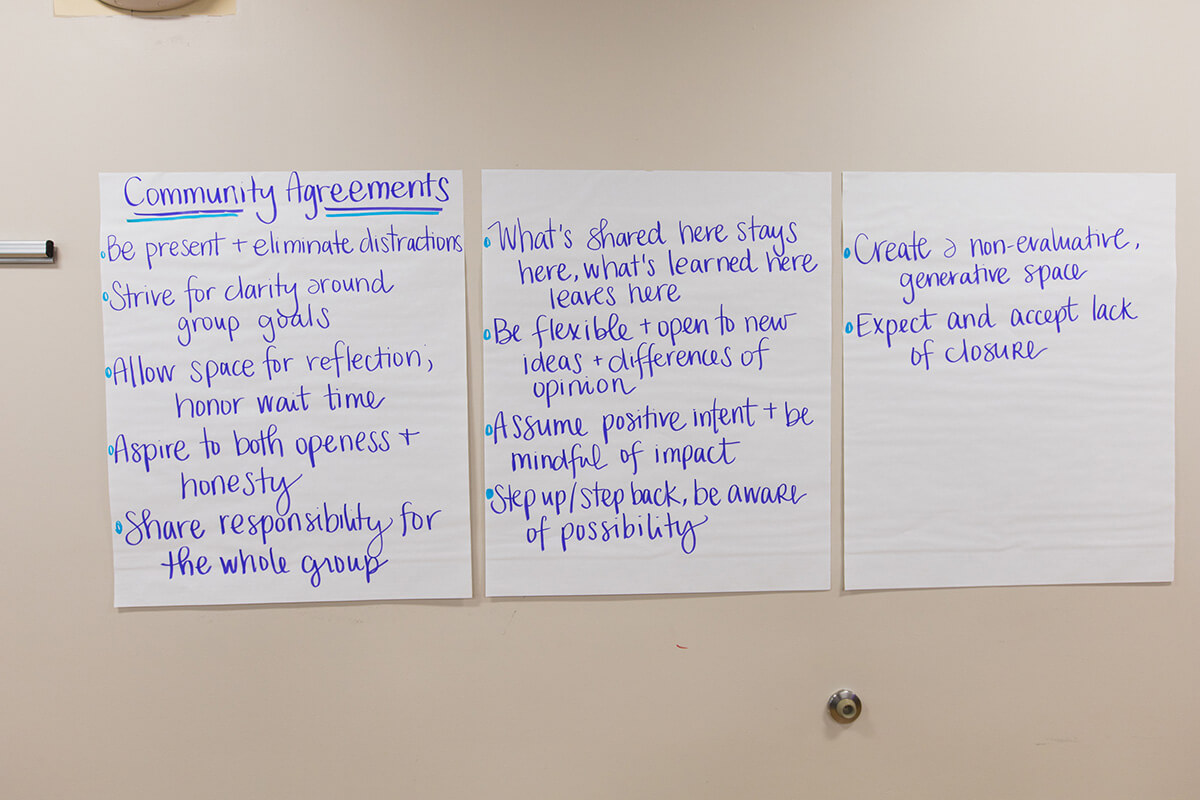
The first premise behind this question is that “ALL children deserve extraordinary, equitable learning … experiences and outcomes.” The second is that if we want people to speak their mind, we don’t need to change them. We need to change ourselves. This is especially true when working to build student voice. So much of our system and its energy is spent on eliciting silence and compliance. We say we want independent, empowered, and engaged students, but our actions often say otherwise. In other words, students are generally expected to defer to the adults.
But on this day, that wasn’t the case. To help students speak their minds, Transcend provided a set of Build Your Ideal School cards to each team with dozens of initiatives, techniques, and school improvement improvement goals, such as mental health supports, personalized learning plans, and celebrating diverse identities.
The job for each student-adult team was to pick 8-12 cards that they thought were priority improvements for their school. Some teams had students and adults pick separate slates of cards, offering a unique glimpse into the differing perceptions of young people and adults at the same school. Then the adults and students would negotiate to create a final slate for the school. Their conversations were enlightening, not only for the differences that surfaced, but also for the agreements reached.
The cards created a level playing field. Had the exercise opened with brainstorming, the educators, with all their background knowledge, would have had am immediate conversational advantage. Putting al of the ideas on the table, literally, in sets of cards, catches the students up to the adults, at least for the purposes of the conversation. The cards also created a separation between the ideas discussed and the people discussing them—taking the ego out of the discussion.
That afternoon, teams created visual representations of their ideal schools, pared their 8-12 choices down to 3, and conducted some research into their priorities. By the end of the day, all of the district teams had shared a uniquely up-lifting experience, and left with next steps to explore.
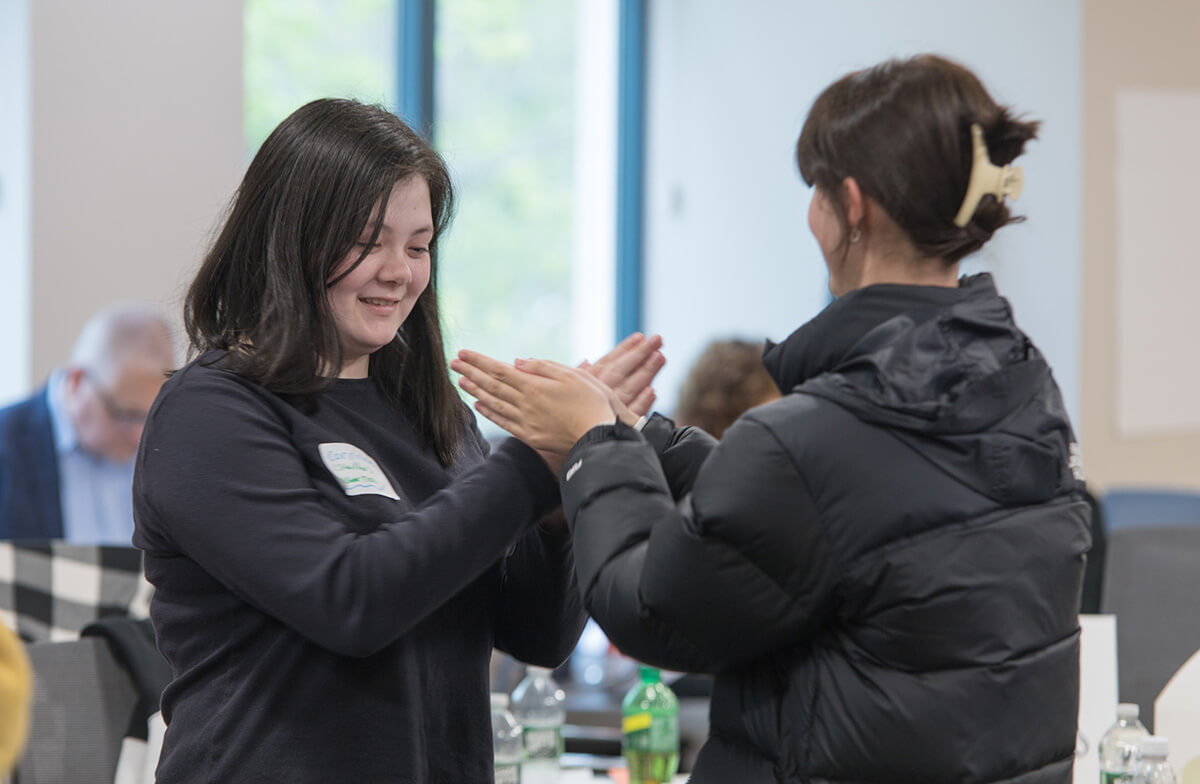
The entire day was vibrant, energizing, and filled with hope. Working with students, rather than on or for them is an important shift in mindset. It’s not enough for students to speak, and it’s not enough for adults to listen, however deeply and sincerely. If we aren’t willing to be changed by what the students say, then there’s no point in inviting them to the table in the first place.
It is the mindsets of the young people (their willingness to speak), and the mindset of the adults (their willingness to listen and be changed) that determine the success of our work to create authentic learning experiences for students.

